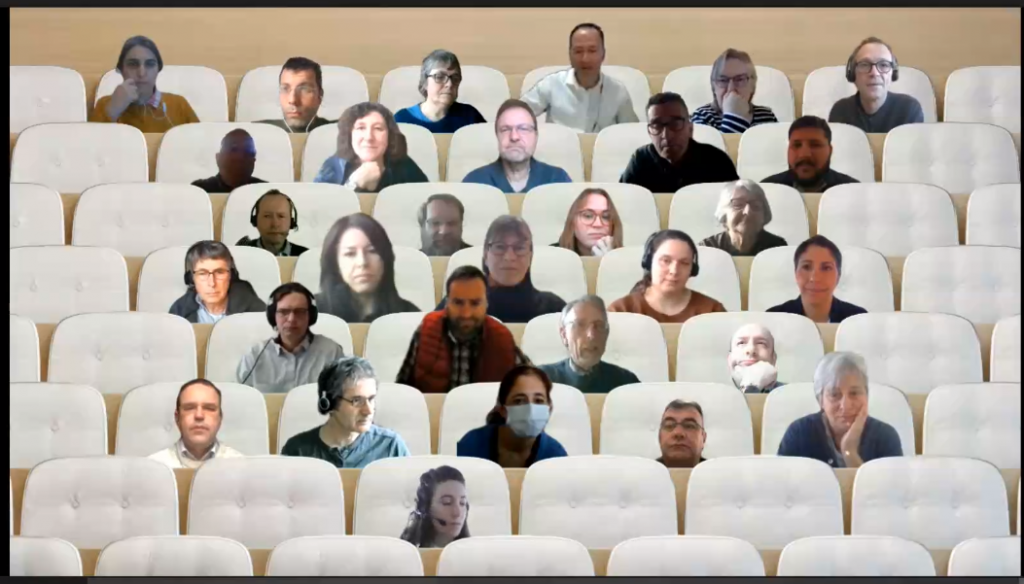Researchers and stakeholders active in two European Horizon 2020 projects, RELACS and Organic-PLUS came together for a webinar on 8 April 2021 to share lessons learned from project activities since 2018. The main areas examined were: reducing the use of copper and mineral oils for plant protection, animal-derived fertilisers from conventional farming, peat in growing media and fossil fuel-derived plastics. The webinar was primarily for people active in the projects, to facilitate open discussion about experiences and outcomes.

Organic agriculture is receiving increased attention with high expectations of its ability to contribute to improve biodiversity and reduce the negative environmental impacts of farming across Europe. The two ongoing Horizon 2020 projects funded by the European Commission aim to strengthen the abilities of organic agriculture in achieving these ambitious goals, by phasing out the use of contentious inputs which are not completely in line with the organic principles of health, ecology, fairness and care.
Copper is used in most European countries as a plant protection product on a wide range of horticultural crops. While being a naturally occurring element, it accumulates in the soil and, in high concentrations, it is toxic to soil and aquatic organisms. Both projects are developing promising alternatives such as plant extracts and decision support systems (DSS) which can significantly reduce the need for applications. To replace mineral oils, a promising alternative is to confuse pest insects using sound.

Conventional animal manure and other animal-derived fertiliser products may be applied to organic soils, but this places organic agriculture in a difficult position being dependent on conventional inputs. The RELACS project has studied the input of fertilisers to various organic farming systems across Europe and found that over time, there is often a reduction in the contents of phosphorus and potassium in the soil. Organic-PLUS have trialled a range of fertiliser alternatives, from household-waste based anaerobic digestates to seaweeds and various legume-based fertilisers. Recycled materials such as green waste compost may also provide a substantial source of nutrients, therefore RELACS has studied the safety aspect of recycled fertilisers, such as the occurrence of potentially toxic elements (e.g., copper, zinc and cadmium). It was concluded that in general, the risks are no higher than with animal manure, but that achieving balanced fertiliser applications over a whole cropping system is challenging with recycled fertilisers and needs adapted planning tools. This should allow us to identify regional needs for additional nutrient sources, especially in view of growing areas under organic production. In addition to soil fertility, Organic-PLUS has also worked with wood fibres and composts as alternatives to peat in growing media and is developing and examining potato starch-based degradable plastic films for mulching as well as the potential of on-farm derived mulches.
More than 50 participants joined the event, which included a lot of interesting presentations and discussions. This exchange will continue as the two projects evolve.
This article first appeared on Organic-PLUS’ website on 19 April 2021.
Organic-PLUS is a 4.1m € European Horizon 2020 project running from May 2018 to April 2022 (grant agreement 774340). It is co-ordinated by Coventry University’s Centre for Agroecology, Water and Resilience and involves 10 universities and 15 multi-actors (other research institutions and NGOs) in 8 EU and 4 non-EU countries.
‘Organic-PLUS’ means minimising, and eventually phasing out contentious inputs from certified organic agriculture. By doing so organic food systems can be more true to the IFOAM organic principle of ‘ecology’. This principle is now shared by the EU Bio-economy agenda, focusing on renewable biological resources from land and sea. Furthermore, this research is also applicable to non-organic farming systems seeking to adopt more agroecological solutions. This combined focus on organic principles and Bio-economy may not only lead to more resilience and quality assurance within organic production, but also reduced environmental impact and fairer, more reliable rules and regulations that organic consumers (current and new) can trust to “buy-into” the growth of the sector.
The overall aim of the ‘Organic-PLUS project’ (O+) is to provide high-quality, trans-disciplinary, scientifically informed decision support to help all actors in the organic sector, including national and regional policy makers, to reach the next level of the organic success story in Europe.